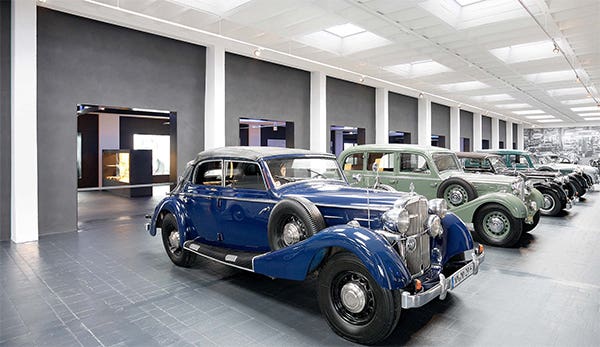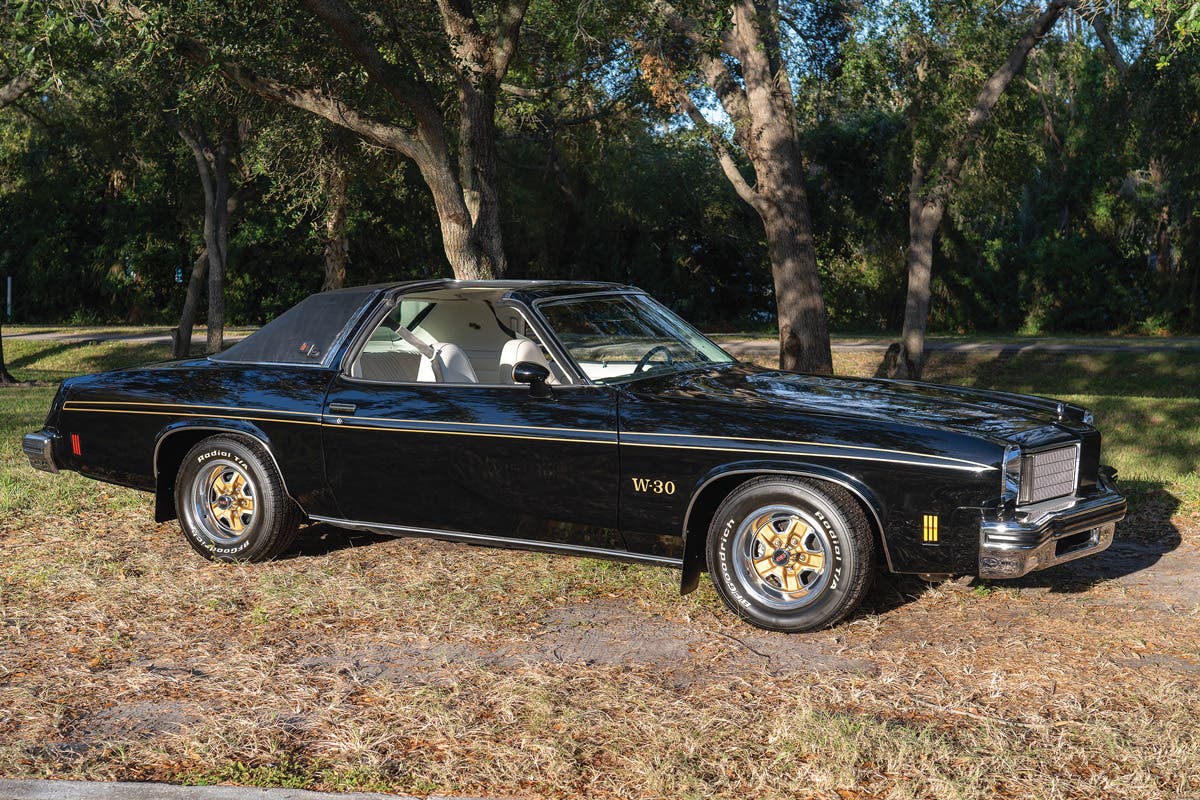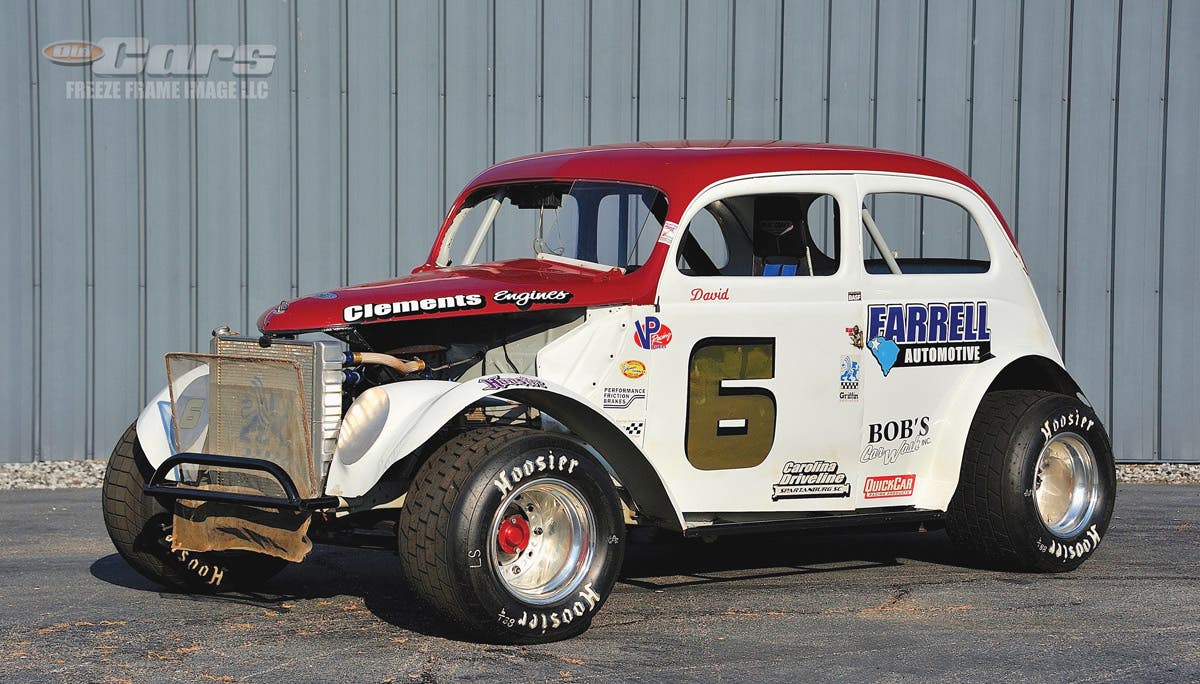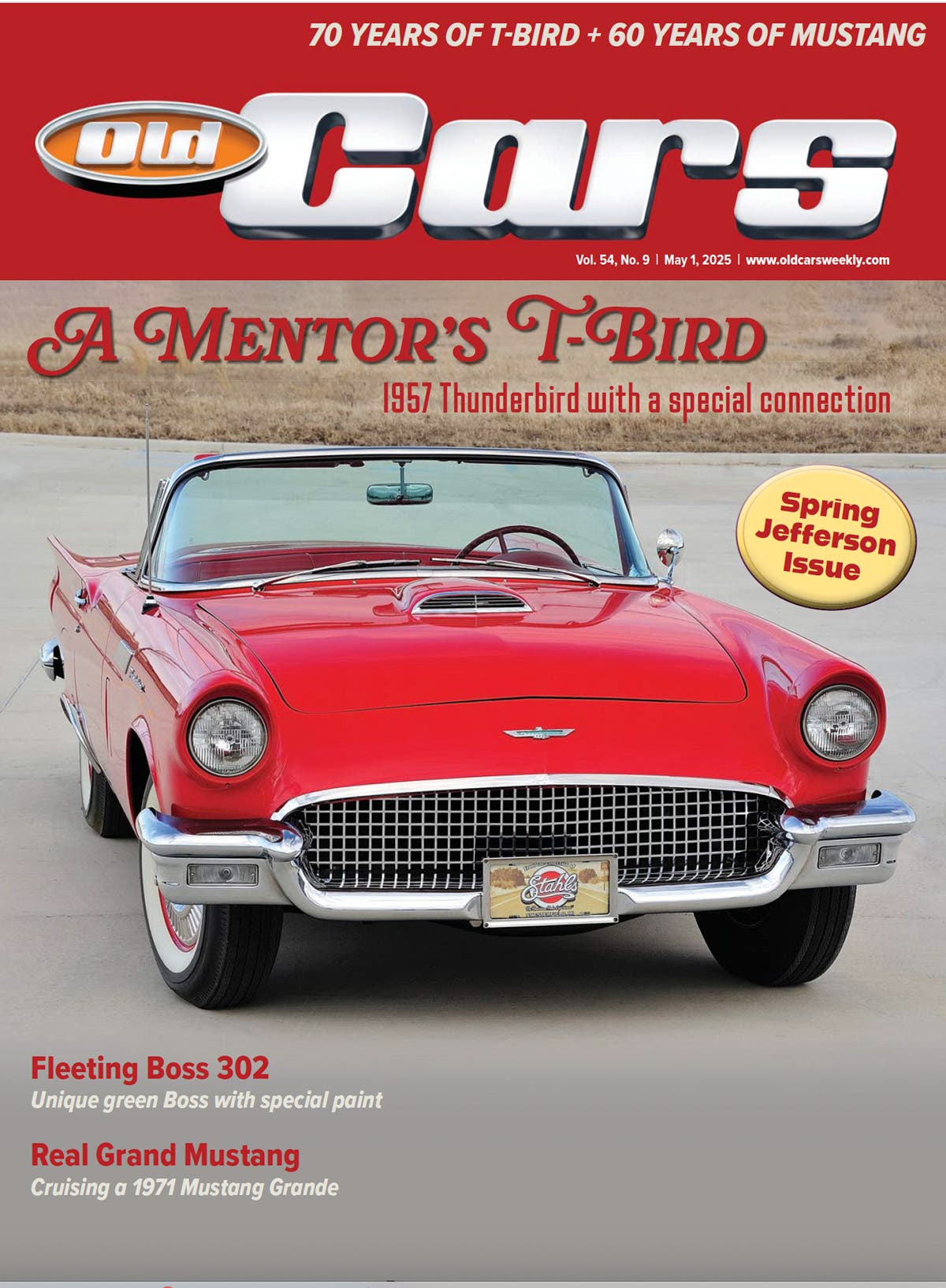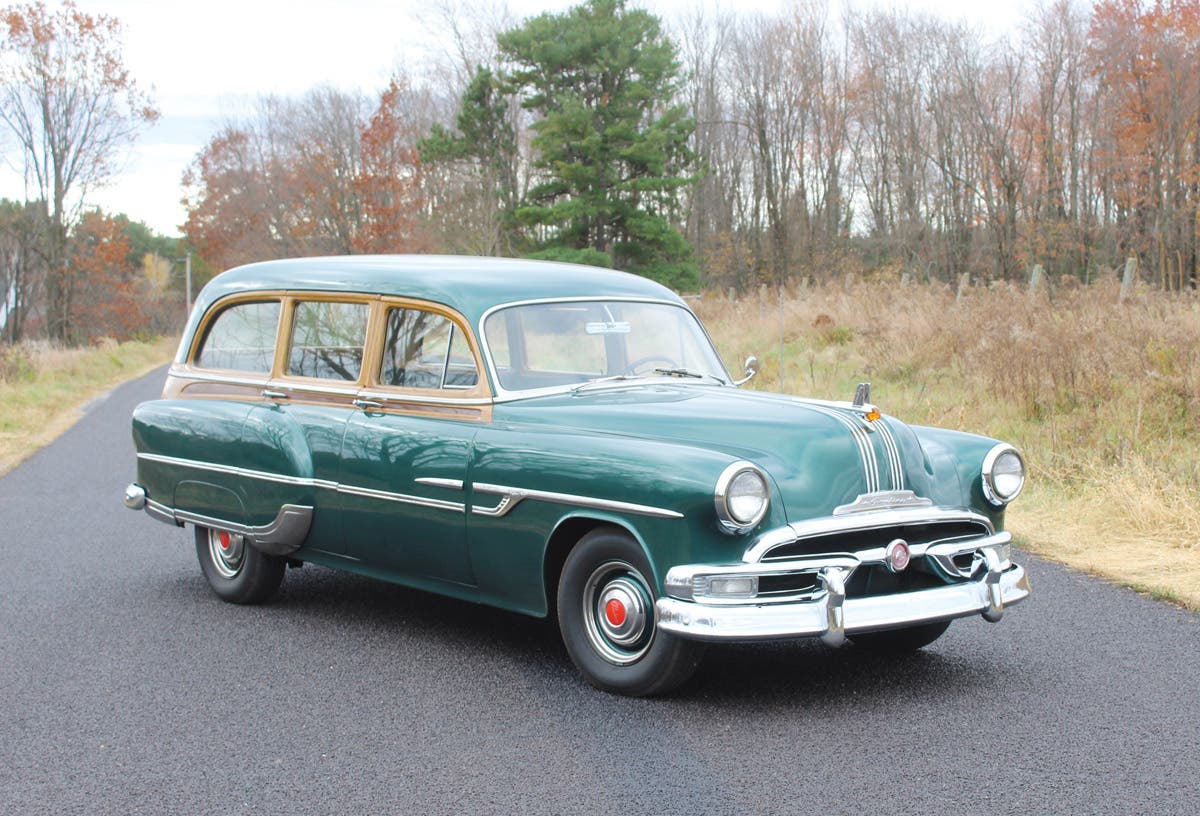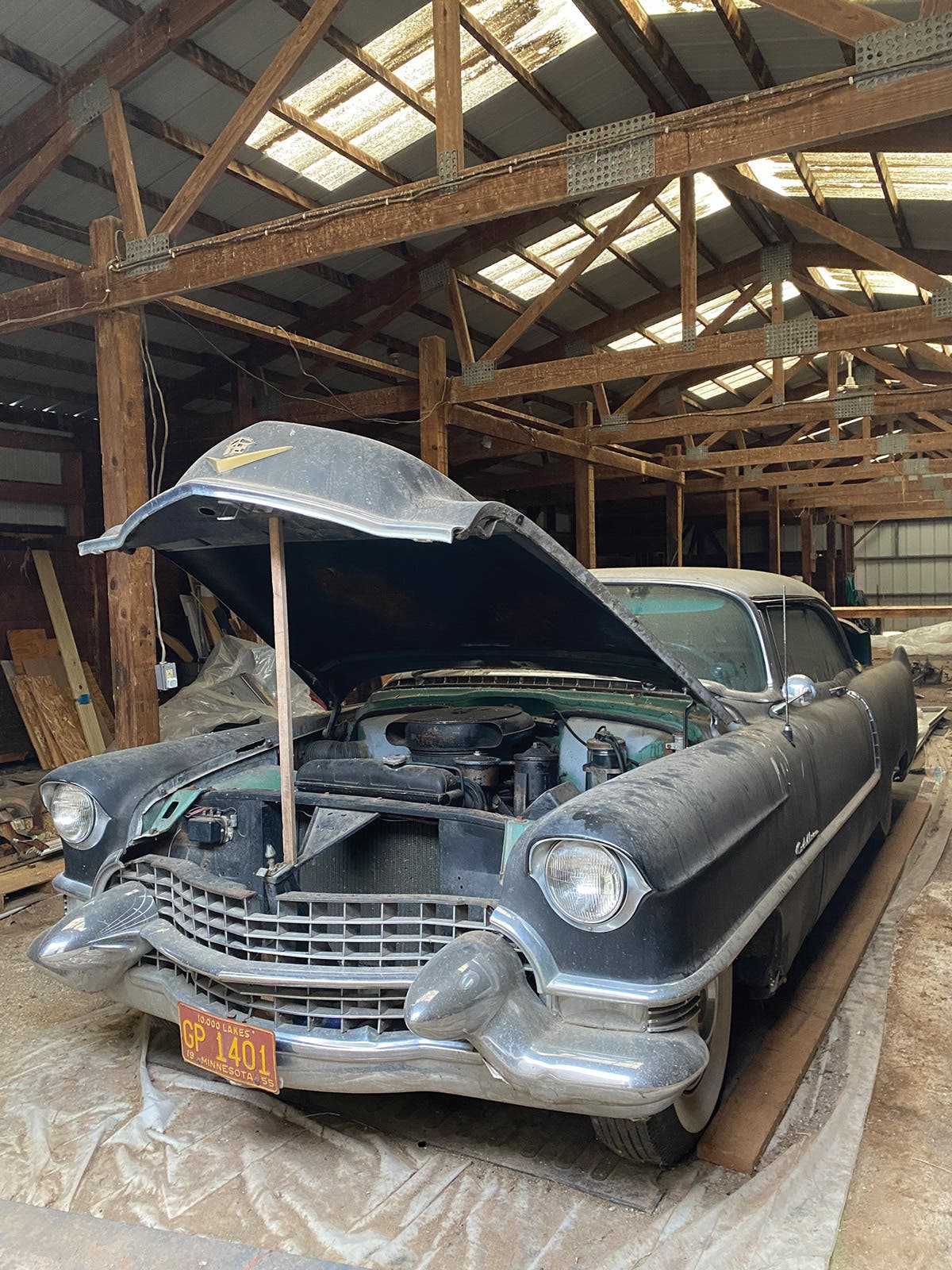Terry Johnson has kept this 1948 Chrysler Town
and Country convertible in original
condition with 35,000 miles.
Times were pretty good on the farm in the late 1940s. The long-fought Second World War had ended, and instead of the war effort, farmers could now produce for export.
That was good news for one North Dakota farm lass. Her father was doing well enough that, as she finished up her high school education in 1947, he told her to pick out her favorite car and he would buy it for her as a graduation present. Her choice was a light-tan Chrysler Town and Country convertible!
And so she headed off to the University of North Dakota. But having a snazzy convertible on campus apparently had a detrimental effect on her educational pursuits. As the story goes, she spent too much time partying, and when Dad saw her poor grades at the end of her freshman year, he put the convertible away in the barn. We don’t know if she ever received her diploma or not, but the Town and Country was still in the barn with only 5,000 miles on the odometer when the farmer died in 1970. Another North Dakotan bought it from the estate and logged an additional 25,000 miles or so over the next couple decades.
Around 1995, the Town and Country was acquired by Terry Johnson, a real estate developer in Denver, Colo. Johnson had already restored several Town and Countrys — he’s owned a dozen over the years — but this one would be a keeper.
It will also be Exhibit A as Johnson writes what he hopes will be the final chapter in his campaign to gain Full Classic recognition for Town and Country cars by the Classic Car Club of America (CCCA).
“T&C” owners and admirers appreciate the rarity, quality and hand-built nature of these cars, and many of them have petitioned the club several times to include them as Full Classics.
“I’ve been working on [CCCA accreditation] since the early 1990s,” said Johnson. “It’s been a slow-action, tough change for the club.”
He intensified his efforts after being elected to the CCCA Board of Directors two and a half years ago. Johnson presented the Town and Country’s case to the CCCA board at its meeting last September, and the directors voted 9-6 to accept the 1941-’48 Town and Countrys as Full Classics.
Organized in 1951, the CCCA originally recognized expensive-when-new, innovative and low-production or custom automobiles from the period 1925-’42. When the 1941-’42 Lincoln Continentals were accorded Classic status, the cut-off year was extended to 1948, as the 1946-’48 Continentals were basically a continuation of the 1942 Lincoln Continental.
Because 1948 remains as the CCCA cut-off year for any car, the wood-trimmed 1949 Town and Country convertibles and 1950 Newport hardtops are not included in the current discussion of eligibility for CCCA tours and judging.
The September CCCA board action was met with vocal objections from some, both board members and the general membership, which numbers more than 5,600. Johnson believes the main objection has been to accepting some six-cylinder models. Convertible Town and Countrys built from 1946-’48, were powered by Chrysler’s 323.5-cid, inline L-head eight-cylinder engine, while the 1941-’42 Town and Country station wagons and 1946-’48 Town and Country sedans used the 250.6-cid six-cylinder engine. CCCA Classics have always had eight cylinders or more.
(Editor’s note: Some opponents also note that CCCA Full Classics are recognized by entire series, not just models within a series. Since Town and Countrys are a model within a series that also contains mass-produced, steel-bodied Chryslers, such as Saratoga coupes and New Yorker sedans that do not meet the parameters of a Full Classic, the Town and Country should not be singled out for Full Classic status.)
Listening to their members, the CCCA board decided in December to put the decision on hold to review the process and allow members to make their feelings known. Johnson made his case for the Town and Country to the Classification Committee, which had not been done previously. He said the committee has approved the Town and Country’s acceptance, so the board will take a final vote at its June meeting in Kalamazoo, Mich.
Supporters point to the Town and Country’s low production (about 14,400 total), high initial cost ($3,400 for a convertible in 1948) and virtually hand-built construction; the wood bodies were constructed in Arkansas and shipped to Detroit for assembly on the chassis.
Johnson points out that he has no business interest in the Town and Countrys being recognized as Classics. “I merely have a passion for this type of car and feel it has not been adequately recognized” he said.
His “keeper” exemplifies the way Johnson likes his cars — well-preserved and just as they came from the factory.
“It just turned over 35,000 miles,” he commented. The 1948 Town and Country has the original eight-cylinder engine, red leather and taupe Bedford cord upholstery and carpet. The Catalina Tan paint has been touched up in places, and he has replaced the convertible top with one just like the red original, which was surely as stunning around the North Dakota U. campus as it is today!
Other Full Classics also occupy his Denver garage. His wife’s favorite is a 1933 Packard Twelve Coupe Roadster, and stablemates include a 1940 Lincoln Continental and two 1941 Cadillacs: a convertible and a sedan that was bought new by Elvira Dowd, President Dwight Eisenhower’s mother-in-law.
Johnson predicts that his wood-bodied Catalina Tan Chrysler with the red convertible top will finally receive the recognition it deserves, as a Full Classic member of the Classic Car Club of America.
“I anticipate that the final vote will be positive,” he said. “An overwhelming percentage of the membership is in favor.”



